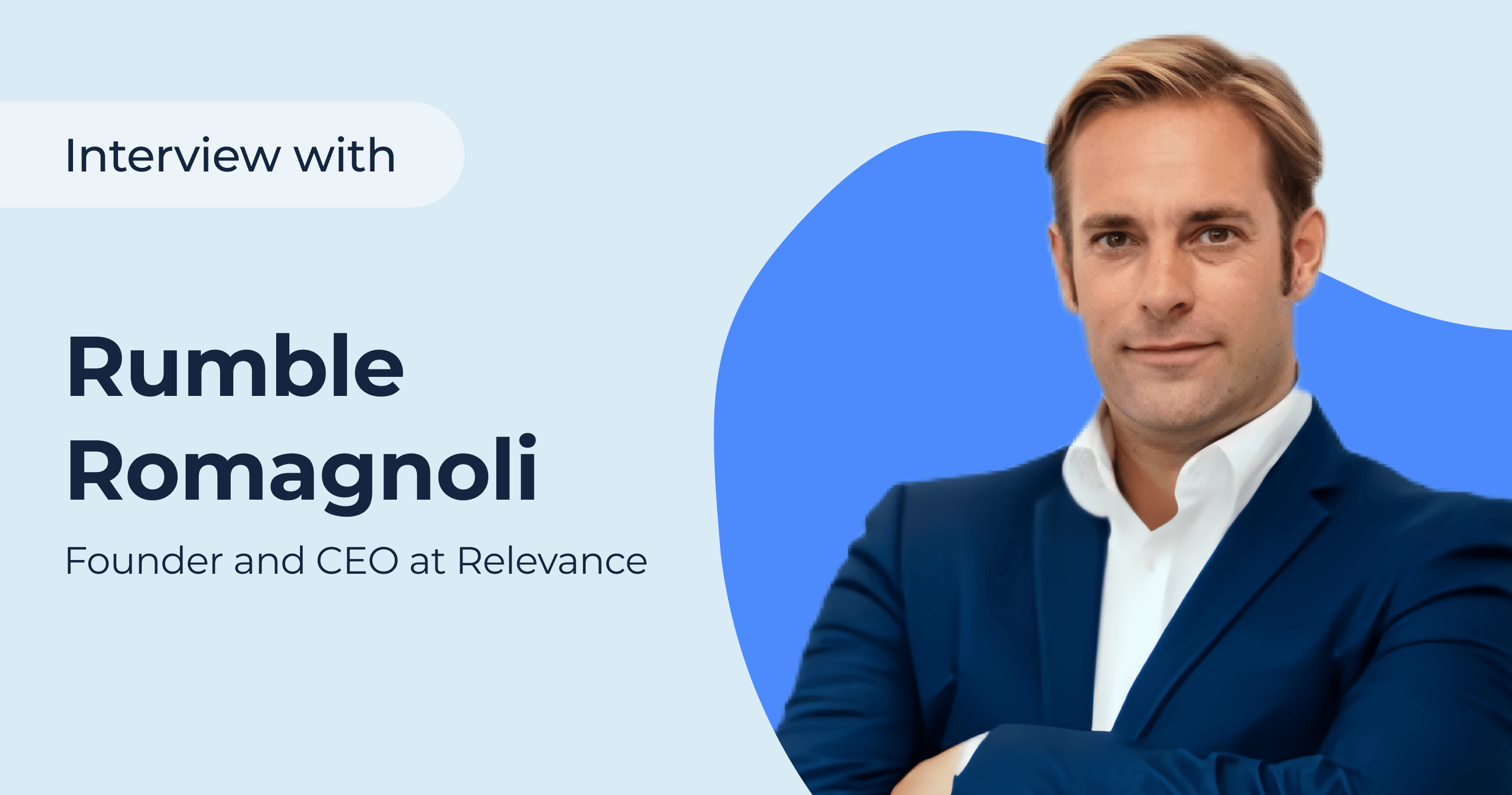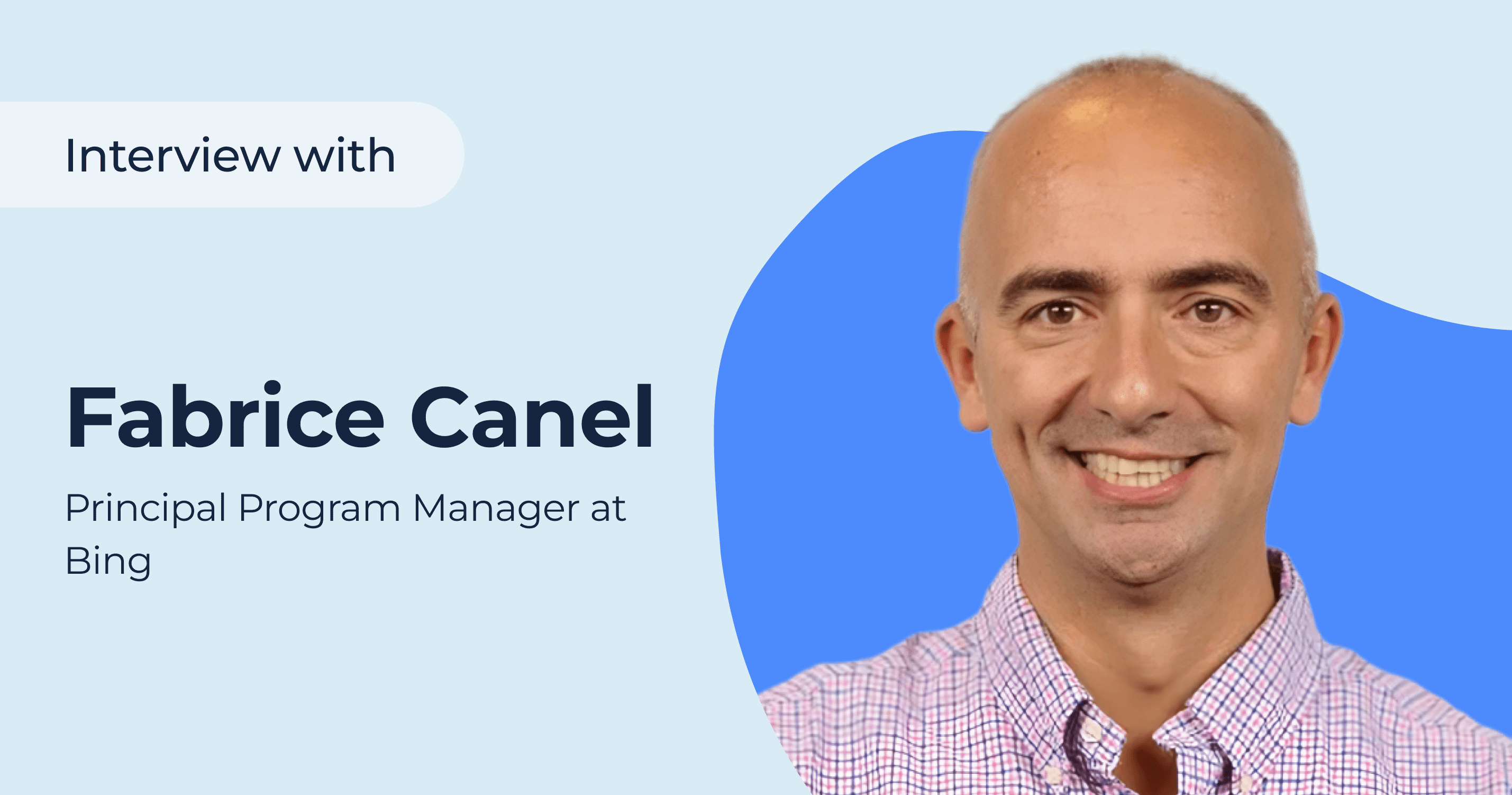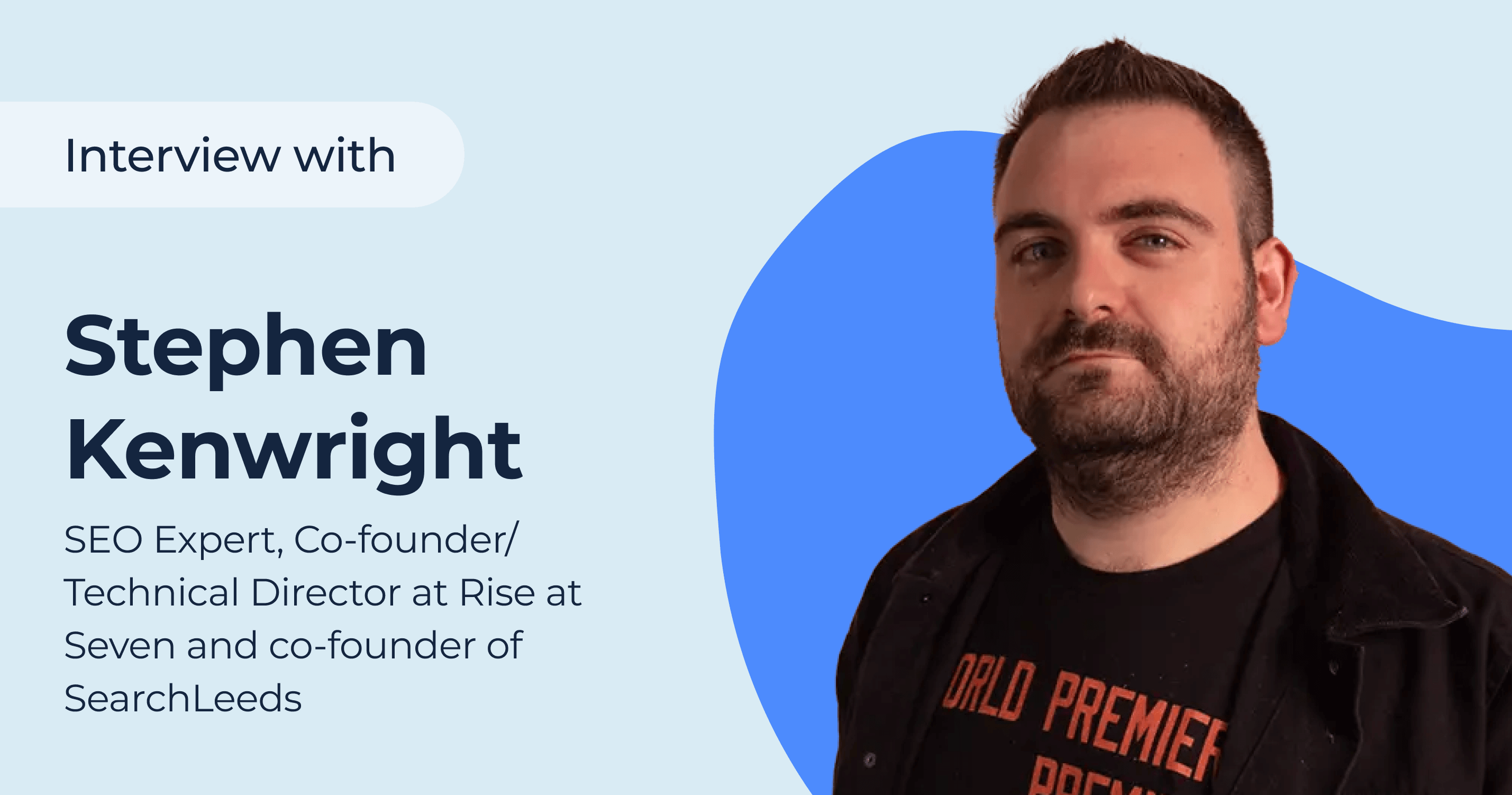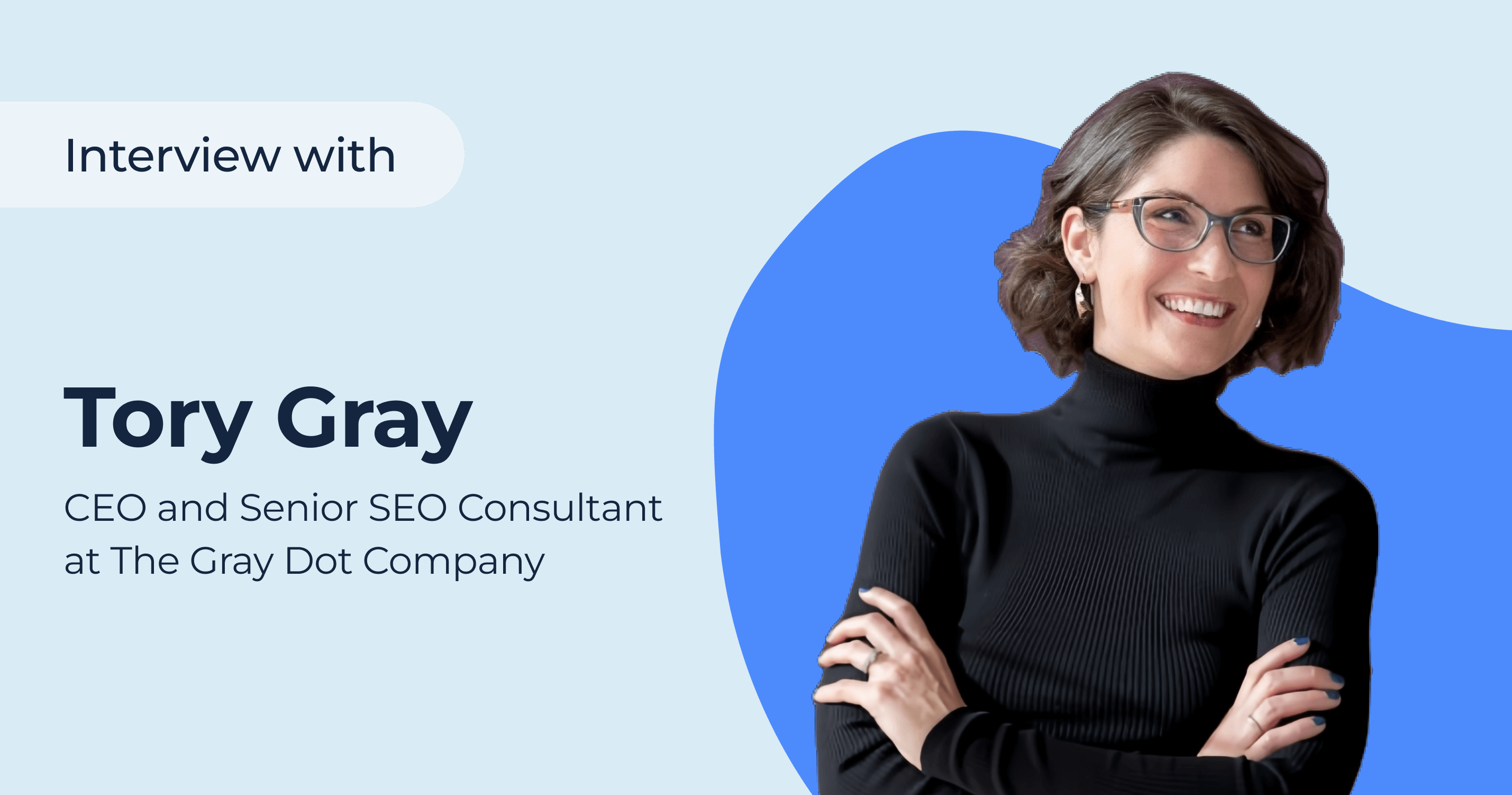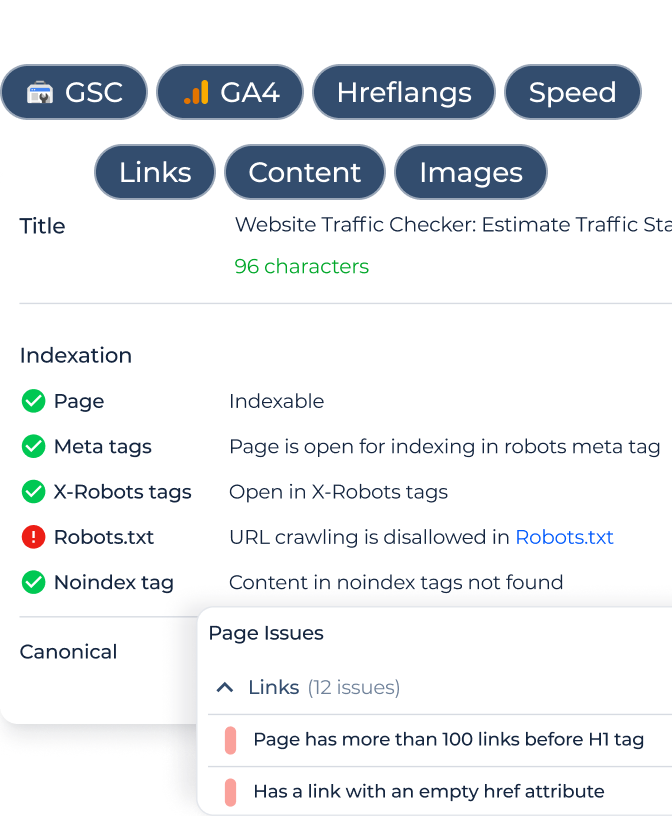Rumble Romagnoli is the founder and CEO at Relevance, a full-service luxury digital marketing agency specialised in targeting UHNWIs. Rumble has 25+ years of experience working in digital and has helped over 200 businesses – from international companies to start-ups – navigate their marketing approach. He excels in defining online strategies and concepts for exclusive and luxury brands through digital marketing, especially for superyachts, aviation, real estate, luxury travel, hotels, beauty and fashion. In addition, Rumble frequently gives talks at conferences like BrightonSEO and Digital Marketing World Forum and contributes to platforms like The Drum and Forbes Monaco. He is also an adjunct professor of Digital Marketing at the International University of Monaco. To know more about Rumble ’s projects, follow his Twitter page.
1. How many years of experience in digital marketing do you have?
23 years. I started working on SEO, and built my own website in 1997 when Google launched and flash websites were king. We started an internet-based travel company when travel companies were still selling holidays in shops. I started the agency Relevance 10 years ago — a full-service digital marketing agency specializing in UHNWI targeting.
2. What type of digital marketing you have the strongest skills?
My background is in SEO, which I still believe is the core of any digital marketing strategy – so it’s definitely the area I’m most passionate about and have a high level of knowledge in. But this has to go hand in hand with all other digital areas — so I make sure I— and my team — are great all-rounders too.
3. You grow many own projects. Why did you decide to use different brand names for each of them?
Yes, we have several companies we own. It’s great being your own client.
4. What projects you have launched recently you are proud of?
We’ve launched several websites recently that I’m particularly proud of, but the one client that always stands out for me is Fraser — Relevance has been their digital marketing partner now for over a decade. Our understanding of the luxury sector enables us to bring a wealth of knowledge to the team at Fraser, helping to support the Marketing team and bring new and existing clients to the website.
5. What do you do to further your own SEO knowledge and skills?
I read blogs like Search Engine Watch, Search Engine Journal, and have alerts of major Google Algo changes. I check patents to see what future trends may be happening especially with Google. I watch YouTube videos, I follow all the major and minor SEO influencers on Twitter – John Muller (Matt Cutts before,) Neil Patel, Rand Fishkin, Dana Ditomaso I listen to podcasts and did the whole Kelvin Newman Internet Marketing one before he sold. I attend webinars by other SEO pros, loving Dixon Jones from Majestic…I follow the competition closely for any new ideas. I attend many major SEO events and I read books as many as I can… and I make sure my team does the same with a weekly Moz Whiteboard Friday event and constant knowledge sharing through Wednesday Wisdoms. I am also part of the recruitment team so end up asking and listening to many other professionals. I hire external SEO professionals to check my work and often ask Twitter and LinkedIn pertinent questions to get responses. I am the professor of digital marketing at the International University of Monaco and am a keynote speaker so am always researching. We have a research team at Relevance for our own blog and social media so we are always trying to find a scoop and uncover pertinent info.
6. Is there any marketing or SEO blog you like most of all and why?
Search Engine Journal is probably my best but I aggregate lots of SEO articles into my e-mail box.
7. What are the TOP-3 errors you made at the beginning of your SEO specialist career?
- Just watching mobile traffic escalate and not being as ready for mobile first as I could have been.
- Believing Google was not following no-follow links.
- Ignoring the power of image SEO.
8. What SEO tactics do you think are underrated?
Backlinks, backlinks, backlinks. I think sometimes – when newer techniques and changes to Google emerge — the fundamentals of SEO get forgotten. But you must remember how important backlinks are. Also – right now – people are not getting on the Video SEO bandwagon quick enough. You have to be there – at the forefront – and get your clients on the first page of Google, ahead of the standard SERPs.
9. What website performance items should always be tackled when it comes to Google’s recommendations?
Site speed is so key — and can be hard to tackle, particularly if you’re dealing with a website you’ve taken over. And, now, it’s absolutely vital to be thinking mobile-first. Not just because Google tells you to do so, but for user experience too.
10. Do you believe that backlinks are Google’s past? Is link building important for increasing the website’s positions nowadays?
Yes, about 60%. Backlinks are the power behind your position in the SERPs — follow and no-follow. Google’s news about following no-follows doesn’t come as a surprise. We will see how things change.
11. In your opinion, does the technical health of the website affect the ranking positions in search engines?
Google itself judges your site based on technical details, but also your users do too. If they think your site doesn’t work the signals this sends to Google (high bounce rate, lack of engagement with the site) will count against you too. SEO is such a complex combination of factors — but the technical health is your foundation.
12. We all know about the June update from Google. Some websites rose, some of them fell. What do you think about the new algorithm? What are the main new rankings factors SEO and Marketing specialists should pay attention to? How do you stay up-to-date on the near-constant search algorithm changes?
-
- The most recent algorithm change in October (BERT) is far more important, in my opinion. The June update focused on authority and trustworthiness, which had a huge impact on some popular, but maybe not authoritative websites. However, October had an impact across the board — introducing a fundamental change to the way Google understands the language of websites, introducing context, conversational language — essentially making Google more human.
- From an SEO ranking perspective, the main change we’ve seen recently is in the new way Google is using its ‘real estate’ — shifting from a link-based platform to something altogether more encompassing. Making you really work to get high-quality content at the top of the front page. Google wants to keep users on Google. You have to convince users to leave it. And using a huge variety of formats and approaches.
The big one is the news Google may start to decide to use no-follow links for ranking/crawling/indexing but the work on that from the engineering team has not yet begun. Google originally said they would make this change after March 1, 2020
Rumble Romagnoli, CEO at Relevance digital agency
I stay up to date using the sources mentioned above – as soon as something major has an impact, you know about it!
13. Are you going to surprise SEO and Digital Marketing world with something new (tool/app, course, product)?
I love keyword research, and at Relevance we have figured out a cutting edge method for you to create an airtight keyword research strategy by using the best tools on the market and a few nifty formulas. I will be coming to BrightonSEO April 2020 to share my latest processes with the SEO world.
14. How do you make competitors analysis? Please provide a short 1-2-3 steps guide.
- It is key to know who are the main competitors, they may not be the ones you think they are – through internal business knowledge and through SEO research.
- Once we’ve got this information we do a full audit of the competitors’ digital assets — focusing primarily on their websites.
- But the most important part (which will be introduced at Brighton SEO) is the keyword research we do, which takes information from what all competitors are doing and teases out a strategy. It provides business intelligence which will revolutionize the way a company or client approaches their business.
15. What key factors to measure when planning to launch a website absolutely unknown to your niche?
We always stick to our niche which is the luxury industry. We have ten years of experience. I would advise lots of customer, employee and competitor interviews if you have no idea about what you are building.
16. If somebody asked you to help/make SEO for website, what themes would you decline? And why?
- We’ve worked for over 10 years to specialize in targeting HNW and UHNW individuals. Our agency has a strong track record of promoting high-value goods, services and experiences within the luxury sector, successfully reaching HNW and UHNWIs and driving them to take action.
- As this is our true niche, we work solely with clients in the luxury sectors or companies with very high ticket items looking for the most wealthy clients.
17. Google webmasters every year say that backlinks do not work. What do you prefer for your website according to them: good backlink profile or high-quality content?
I don’t think you can have one without the other. A high-quality backlink profile leading to a poor-quality site will not prevail and neither will a website with amazing content with no backlinks. We have to think of websites as Google would post-E.A.T. and BERT — is this website high quality, authoritative, written in a natural manner — and do other people trust it. This requires both of the above.
18. What is your checklist when doing website audit?
Our standard technical audit has over 45 different checks — in areas such as content, code, sitemap, performance and lots more. It’s very comprehensive.
19. In your opinion, does the user’s behavior impact website ranking in SERP?
Yes, I believe it does. SEO does not exist in isolation from UX.
20. In your opinion, does the technical health of the website affect rankings in SERP?
Yes, as mentioned above.
21. What is your approach to developing an SEO strategy?
It’s based on several stages — client discovery, brainstorm, keyword research (with our bespoke approach mentioned before), competitor analysis, technical audit, SERPs analysis, sitemap, and the SEO strategy. The strategy sets out short-term, mid-term and long-term goals based on competition and potential returns.
22. What services/companies/apps have inspired you the most this year?
TimeCaps is a revolutionary new app that is competing with society’s need for instant gratification. Time Caps stores your memories/videos until the date you select for them to hatch – in the future. It goes against the Instagram model which allows users to see everything at once. We will see how it takes.
23. What are the most critical SEO mistakes you have ever seen in other companies?
BMW’s white text on a white background is the biggest SEO error I have ever seen — cloaking. It resulted in them being banned from Google for years. ToysRUs.com bought Toys.com but forgot the implications of 301 redirects
24. How do you evaluate web analytics to measure SEO performance?
We use a variety of tools and techniques, but fundamentally it comes down to what the client wants to achieve. We measure DA, SEO visibility, organic visits, and lots of other metrics – through SearchMetrics, SEMRush, Moz, Google Analytics and other tools — but the most important thing is to agree on KPIs so you know what you’re measuring.
25. How do you see the future of SEO (in 5 years)?
I think SEO is going to change more in the next 5 years than it has in the last 15. Just these past 12 months there has been a clear shift from SEO being a text-based exercise to something far more far-reaching — image, video, voice… All the changes in the way that we use our search tools, whether that’s the way we use our phones or ask Alexa for an answer moves the goalposts for SEOs. And this progress is speeding up every day.
26. Which SEO or marketing tools can you recommend as a must-have for every SEO specialist?
There is a wide variety available but SEMRush won our poll on Twitter as the best SEO tool. Other great tools are SearchMetrics, Moz, Ahrefs, Sistrix. What you need will depend on the size of the business you’re working in or the clients you have. Majestic and Screaming Frog are also very important tools.
27. What advice can you give for those who are just starting their career in digital marketing?
Even if you specialize, be aware of all areas of digital — they’re all interconnected and affect each other. Keep building your knowledge, and read a lot, listen to others, learn as much as you can.
28. How to make a website search engine friendly? Could you please name the main steps?
- Keyword Research
- SEO Site Map Creation
- Content Creation and Optimisation
- On-page SEO
- Technical SEO Work
- Link Building Strategy
29. SEO is such a controversial thing. Every SEO specialist rate its success differently. What is your way to rate SEO success? What metrics do you look at?
This entirely depends on our client’s KPIs — we can measure success in a purely SEO way, ie. search visibility, DA, or keywords in the top ten of Google. However, for most of our clients the success of SEO is measured by their results on site — have people come via Google and filled in a form, have they bought a product, have their sales increased? That’s the true measure of success as it tells us we’re getting the right people to the site, not just a high number of irrelevant people.
30. In your opinion, a good SEO specialist should be a good analyst? What extra knowledge should SEO specialists have to succeed?
A good SEO should be analytical, but also creative and have a good understanding of customer intent and user experience.
Rumble Romagnoli, CEO at Relevance digital agency
31. What SEO analysis metrics you pay attention the most?
Sales, Conversion rate, retargeting lists.
32. Do you have any experience managing a marketing or SEO team? What were the biggest challenges?
Yes — I manage an agency! It’s a whole team of account managers, marketers and technical digital specialists. The biggest challenge is to keep everyone happy all of the time as their lives change.
33. You are noticed at many digital conferences. How important live communication is for business? How does it work for you?
Raising my profile as a digital marketer is very important to us, because it puts us at the forefront of people’s minds when they’re considering approaching a digital agency — whether they were there in person, or they find us online. It’s also incredibly important to be at these events where other digital experts are speaking, to share ideas, expertise and debate best practice.
34. Should a business have a corporate blog?
Absolutely! It’s an opportunity to apply SEO principles to content which sits outside of your main website pages. A great chance to rank for longer-tail content.
35. How can start-ups and early-stage businesses use SEO effectively to drive traffic to their sites?
In the same way as anyone else – but they will have to do a lot more legwork at the beginning. Link building, local SEO and building up a good amount of high-quality content will be key. Definitely get an SEO agency on board early on to guide the creation of your website – so you don’t expend your energy in the wrong places.
36. What do you prefer the most: client SEO, own projects, consulting, something else?
There’s great things about all of them — client SEO is really satisfying, particularly when you’ve got a strong working relationship with a client and you can really see the results. The joy of my own projects is being able to test new ideas more readily and quickly.
37. What strategy do you prefer: launch and grow many small projects or work on a few solid projects?
We are now a 40 people agency. We are getting larger but want to stay boutique so we can still have close relationships with our clients. We keep the same account manager on each client even as we grow. We have to balance a portfolio of larger projects with the smaller ones.
38. Have you ever used black hat and grey hat SEO tactics? What do you think about them?
I think in the early days of SEO everyone tried a little bit of everything, technique-wise, but Google is so wise to it, and it brings so little long-term value that I advise avoiding these tactics. Google will pick up on what you’re doing, and the last thing you want is for a client to be penalized.
39. Have you ever run Google Ads campaigns? How do you combine Google Ads campaigns and SEO?
Yes, many — we run Google Ads campaigns for most clients. The trick with combining the two is knowing when one is potentially stronger than the other — ie. you can use Google Ads for quick wins, or keywords where your client isn’t strong enough (yet), but also learning from one discipline to the other. What works on Google Ads for your client in terms of keywords? Have you used this in your SEO strategy? There’s a definite crossover — after all, the results appear in the same place!
40. Does your university degree help to succeed in SEO and digital marketing?
My degree is in law.
Google is an unwritten law with over 200 factors or rules affecting the end result or decision.
Rumble Romagnoli, CEO at Relevance digital agency
I like how the doctrine of precedent is the approach of a UK court in the context of previous court decisions. We use client SEO results to make decisions.
41. Can you share your professional and business plans for the next 2-3 years?
Relevance is in an era of growth — building our internal teams, and growing our client base. We have many plans over the next few years to help us continue with this!
42. Can you describe in a few words your strategy how do you work with any project from start to finish?
Evaluate, analyse, strategise, optimise… and repeat.
43. What can you tell about mobile SEO? Is it true for you that mobile SEO will absolutely force out desktop soon?
It won’t ever completely force out desktop — after all, there will be large format displays used in a commercial and corporate setting for the foreseeable future, but statistically speaking we need to acknowledge the major shift towards mobile – and create our SEO strategies with that in mind.
44. Is it important for SEO success to have high-quality content or optimized meta tags?
Yes, both.
45. Structured data is becoming more and more important these days. How do you think why? Why did Google start to pay so much attention to structured data sites?
I think comes from two places: 1) Google understands how people like to consume information better than most of us do — people like questions and answers, people like lists, etc. 2) Google wants to get everyone to provide data in this format, and then use it on Google.com! But we have to play their game in order to make sure we’re at the forefront of SEO and digital marketing.
